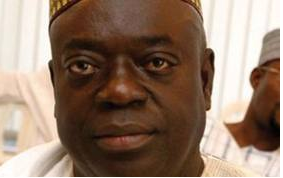
Babangida Aliyu
Mr. Aliyu, who is the Chairman of the Northern Governors Forum, said this at the international conference on Security and Development Challenges of Pastoralists in West and Central Africa
According to Aliyu, Boko Haram is un-Islamic and must be condemned, adding that the right Jihad in this 21st century is the one that improves the standard of living rather than seek to destroy lives.
“Boko Haram is un-islamic. Islam is about moderation and not extremism. Jihad is about how to make peace and life better, not how to kill people.’’
Earlier, the Minister of Agriculture and Rural Development, Akinwumi Adesina, lamented that pastoralism had become a security threat.
According to Mr. Adesina, pastoralism has over the years been a seasonal and mutually beneficial traditional livestock management and production system which had worked well between Fulani herdsmen and local farmers.
“Pastoralism has become a worrisome practice characterised by incessant clashes of unimaginable proportions usually resulting in huge losses of lives and property.’’
He said that previous interventions to curb pastoralists-farmers clashes had been largely unsuccessful because of the growing foreign dimension to the conflict.
The minister noted that there had been reports of some of these foreign migrant pastoralists carrying dangerous weapons and assault rifles.
“This is not the usual pastoralists that we know in Nigeria, who for decades have lived in harmony with their communities. Criminality has increased, especially with the menace of cattle rustling.
“The issue is no longer an agriculture problem. It is a national security problem and we need an integrated set of solutions that includes agriculture and security.
“We must face these challenges squarely, be frank and realistic in our solutions.
“One thing is clear: the status quo of unbounded pastoralism can no longer continue. These solutions can no longer be just national,’’ he said.
Mr. Adesina harped on the need for a regional solution, stressing the need to “think out of the box’’.
“Old traditions must give way to new realities and challenges. Moving animals, instead of beef, can no longer be sustained.’’
According to him, movement of animals without tracking systems for animals or record of the animals for traceability can no longer be sustained in the face of rising conflicts, criminality and insecurity.
“We must accept that just like humans cannot move between places without identification, it is no longer tenable for migrant pastoralists, whether local or foreign, to move without any identification.
“We must accept that just like cars cannot move without licenses or chassis number, the days that animals are without labels, records and tracking are limited.
“As a government, we must change our approach. Our communities must change, and within ECOWAS, we must change.
“One fundamental change that must be made, which is structural is that we must end the practice of moving animals.
“Rather, we should be moving beef, not animals. This requires that urgent priority be placed on West and Central Africa developing its Halal-meat industry,’’ Adesina stated.
The Speaker of House of Representative, Aminu Tambuwal, said there was need to constantly create avenues where pastoralists and farmers could meet to discuss areas of conflicts before they get out of hand.
He noted that if there was good communication avenue between the two classes of food producers, there would be less reason for battles.
“I urge the media to help us in this regard by resisting the urge to portray pastoralists as the eternal drivers of conflicts.
“Sometimes, they are also victims and sometimes, it is not the herdsmen that are involved but some cattle rustlers and mercenaries.
“These things are more complicated than they are sometimes portrayed.
“I must commend the initiative of Mr. (Sambo) Dasuki (National Security Adviser) and his team and I hope that we will continue to see more of these kinds of interventions.
“This will help us to better understand the issues before rolling out policies for them,’’ Mr. Tambuwal said.
No comments:
Post a Comment
What's Your Opinion